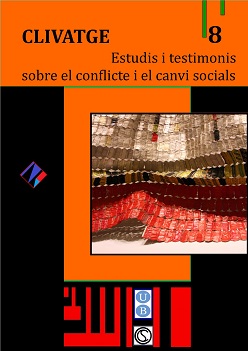Re-municipalisation of Water in the Frameword of Re-definition of Democracy. The case of the Catalan City of Terrassa
DOI:
https://doi.org/10.1344/CLIVATGE2020.8.4Keywords:
democracy, commons, water, life, institutions, re-municipalisationAbstract
This article intends to present the re-municipalisation of the management of urban water as a mechanism to oppose neoliberalism and highlight its connections with the search for new ways of achieving greater democracy. To do this, the rise of the notion of the ‘common’ seems to be the tool that has been used to re-think re-municipalisation as a mechanism to promote social change.
Between 2015 and 2019, the most relevant case of this was the city of Terrassa, where urban water supply—up to that moment in charge of the private company Mina Pública d’Aigües de Terrassa S.A.—was re-municipalised. This process of re-municipalisation gave rise to Terrassa’s Observatory of Water, which is one of the most innovative initiatives in public-supply management incorporating mechanisms of co-production led by the organized citizenry itself; a space-tool which, despite marking the end of the process, it is also the door to deeper debates as well as to the opening of new lines of work whose reach extends beyond water and the city of Terrassa.
Downloads
Published
How to Cite
Issue
Section
License
Copyright (c) 2020 Edurne Bagué

This work is licensed under a Creative Commons Attribution 4.0 International License.
AUTHORS RETAIN COPYRIGHT. CREATIVE COMMONS
The authors who publish in this journal agree to the following terms
- The authors retain the copyright and grant the journal the right of first publication of the work, which will be disseminated following the Creative Commons Attribution license.
- Authors are free to establish additional independent contractual agreements for the non-exclusive distribution of the version of the work published in the journal (such as publication in an institutional or thematic repository, their personal website or a book), provided have your initial publication in this journal recognized.
- Texts will be published under a Creative Commons Attribution License that allows others to share the work, provided they include an acknowledgement of the work’s authorship, its initial publication in this journal and the terms of the license.
- Self-archiving of pre-print and post-print versions is allowed.







